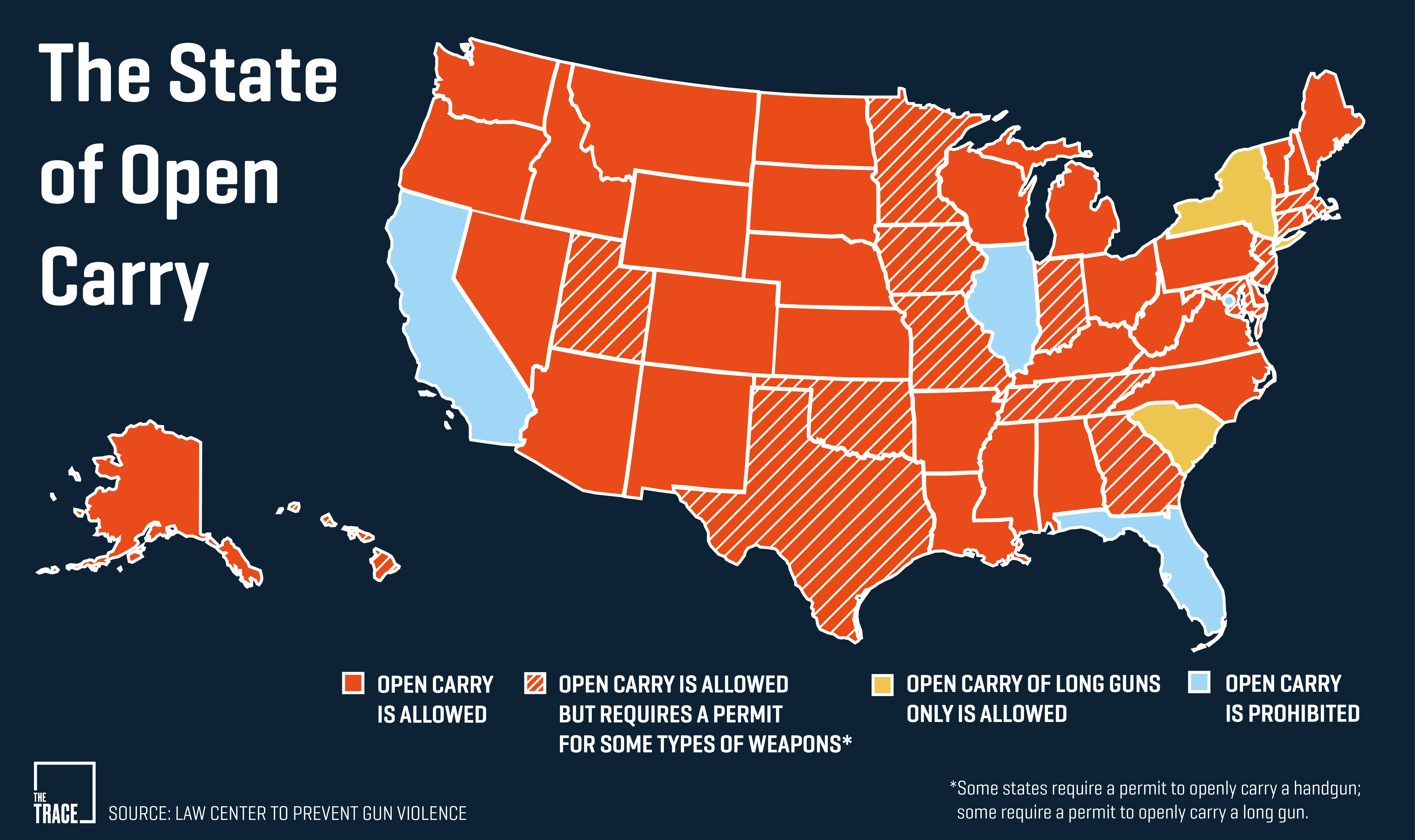States with Open Carry Gun Laws

What is Open Carry?
Open carry refers to the practice of carrying a firearm in plain view in public. This means that a person can carry a gun in a holster or sling on their body in a way that is visible to others. Open carry laws vary from state to state, with some states allowing open carry of handguns, while others allow open carry of long guns such as rifles and shotguns.
States with Open Carry Gun Laws
The following states allow open carry of handguns:
- Alabama
- Alaska
- Arizona
- Arkansas
- Florida
- Georgia
- Idaho
- Iowa
- Kansas
- Kentucky
- Louisiana
- Maine
- Michigan
- Mississippi
- Missouri
- Montana
- Nebraska
- Nevada
- New Hampshire
- North Carolina
- Ohio
- Oklahoma
- Pennsylvania
- South Carolina
- South Dakota
- Tennessee
- Texas
- Utah
- Vermont
- West Virginia
- Wyoming
The following states allow open carry of long guns:
- California
- Connecticut
- Delaware
- Hawaii
- Indiana
- Maryland
- Massachusetts
- Minnesota
- New Jersey
- New Mexico
- New York
- Oregon
- Rhode Island
- Washington
- Wisconsin
Regulations on Open Carry
While these states allow open carry of firearms, there are regulations in place to ensure safety and minimize the risk of violence. Some states require a permit or license to openly carry a firearm, while others allow open carry without a permit. Additionally, some states prohibit open carry in certain locations such as schools, government buildings, and private property with posted signs.
Permit or License
Some states require a permit or license to openly carry a firearm. These states include Alaska, Arizona, Idaho, Kansas, Maine, Mississippi, Missouri, New Hampshire, North Carolina, Ohio, Oklahoma, South Dakota, Vermont, and West Virginia.
Prohibited Locations
Many states prohibit open carry in certain locations such as schools, government buildings, and private property with posted signs. It is important to check the laws in each state to determine where open carry is allowed.
Advantages and Disadvantages of Open Carry
Advantages
- Allows for self-defense: Open carry gives individuals the ability to defend themselves in case of an attack.
- Deters crime: The presence of a firearm can deter criminals from committing crimes.
- Promotes responsible gun ownership: Open carry requires individuals to be responsible and aware of their surroundings.
Disadvantages
- Intimidation: Open carry can be intimidating and create fear in others.
- Accidents: The presence of a firearm in public increases the risk of accidents.
- Unnecessary attention: Open carry can draw unnecessary attention to the individual carrying the firearm.
FAQs
Q: Can anyone openly carry a firearm in states with open carry laws?
A: No, some states require a permit or license to openly carry a firearm.
Q: Can I openly carry a firearm in any location in states with open carry laws?
A: No, many states prohibit open carry in certain locations such as schools, government buildings, and private property with posted signs.
Q: Can open carry lead to violence?
A: While there is no evidence to suggest that open carry leads to violence, opponents argue that the presence of firearms in public can create a dangerous situation.
Q: What should I do if I see someone openly carrying a firearm?
A: If you see someone openly carrying a firearm, it is important to remain calm and call law enforcement if you feel threatened or unsafe.
Conclusion
Open carry gun laws are a contentious issue in the United States. While there are 31 states that allow open carry of firearms in public, there are regulations in place to ensure safety and minimize the risk of violence. It is important to be aware of the laws in each state and to practice responsible gun ownership.
